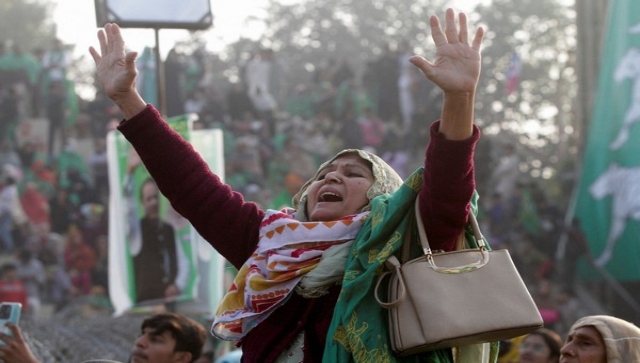Women’s participation in Pakistan’s general elections remains nearly invisible, with reserved seats often being allocated based on nepotism rather than merit, The Express Tribune reported on Monday. According to the report, the trend of favouring family members and offspring of influential political figures has created significant barriers for ordinary Pakistani women aspiring to contest elections directly. For instance, Heer Soho from Thatta, who was recently put on the Pakistan People’s Party’s (PPP) reserved seats’ allocation list, has been receiving the nod for a reserved seat since the 2008 general election. “Heer has been successful in securing the reserved spot for the 4th consecutive general election due to her father, Ismail Soho,” The Express Tribune quoted journalist Muhammad Fayyaz, who hails from Thatta, as saying. “Ismail Soho is a friend of the PPP’s top leadership, therefore, his daughter has been getting the reserved seat ticket repeatedly,” Muhammad added. In similar fashion, Nida Khuhro, who happens to be the daughter of Pakistan Peoples Party (PPP)’s President in Sindh, Nisar Ahmad Khuhro, has managed to secure a reserved seat ticket for the second election running. Likewise, Nafisa Shah, the daughter of former chief minister of Sindh, Syed Qaim Ali Shah, has also managed to secure a spot on the reserved seats’ allocation list of the PPP. And just like the PPP, the PML-N also rewards friends and family of their top leadership with reserved seats. Tahira Aurangzeb, who is the mother of former federal minister for information, Marriyum Aurangzeb, and was also a close confidant of Begum Kulsoom Nawaz, has been given the nod for the reserved seats by the party since 2008. Similarly, Shaista Parvez Malik, the wife of former member of National Assembly, Parvez Malik, received the party’s reserved seat ticket in the general elections of 2013 and 2018; and has been given one this time around as well, The Express Tribune reported. The same is the case for Jamiat Ulema-e-Islam (F), which has given its approval for a reserved seat spot to its supremo Maulana Fazlur Rehman’s sister-in-law, Shahida Akhtar, who has served three times in the National Assembly. The party has also given a reserved seat spot to Rehana Ismail, another sister-in-law of the party head. The Pakistan-based news daily reported that the Awami National Party (ANP), is no different. For instance, it has consistently rewarded Samar Haroon Bilour, of the influential Bilour family of Khyber Pakhtunkhwa (K-P), who is also a relative of former federal minister Ghulam Ahmad Bilour, consistently with a reserved seat ticket to the K-P assembly.
The allocation of reserved seats based on kinship or friendship sidelines female grassroots political workers, which some see as an affront to their dedication to their respective parties. A senior political worker of the PPP in Hyderabad, speaking anonymously to The Express Tribune, noted that the PPP has overlooked numerous women political activists closely associated with Benazir Bhutto, despite them having served jail time for the party in the past. Echoing this sentiment, Farzana Butt, a PML-N political activist, emphasised that many women, including herself, made significant sacrifices for the party during opposition stints but received no recognition, let alone a reserved seat ticket. “It is disappointing that women from influential families and good financial standing get tickets, whereas genuine grass root political workers are sidelined,” The Express Tribune quoted a disgruntled Farzana as saying. While the Pakistan Tehreek-e-Insaf’s (PTI) allocation of reserved seats is in the doldrums due to the party not having an election symbol, Nabil Ghazanfar, a long-term worker of the party from Peshawar, was of the view that the PTI was not any different from other parties when it came to seats’ allocations. This practice of prioritising well-to-do women for reserved seat tickets strengthens the prevalence of the stronghold that dynastic political parties and the existing ruling class has on the rest of the populace. Sanam Wagma Khattak, a professor at the Department of Economics in the University of Peshawar, told The Express Tribune that representation in the provincial or national assemblies should not be mere tokenism but actually representative of the entire populace Agreeing with Sanam, Iram Khalid, Chairperson of the Political Science Department of the Punjab University, said that the women who should be nominated for reserved seats are often overlooked. “Only family relations, loved ones, and relatives are given priority, which results in social classes that are meant to be represented in the provincial and national assemblies by women, lacking a voice. Therefore, political parties should establish a more democratic and performance based formula of allocating reserved seat tickets,” The Express Tribune quoted Iram as saying. With inputs from agencies


)

)
)
)
)
)
)
)
)



